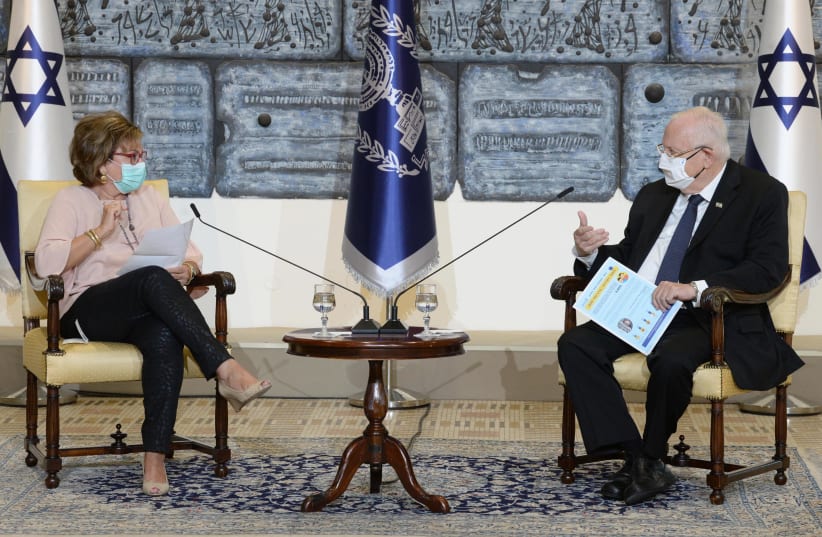The report surveyed 4,800 at-risk youth who received assistance from Elem during the coronavirus crisis from March through May.
Of those surveyed, 251 found themselves without a roof over their heads, 232 attempted to self-harm and 152 developed eating disorders.
Some 145 of the at-risk youth aided by Elem ran away from home, 143 fought with police and another 59 were single mothers.
"Many at-risk youth throughout Israel, who everyday deal with many struggles, suffered more than ever during the coronavirus [crisis], with adversity that intensified and worsened to the point of severe emergencies," read the report.
Some 5% of those surveyed by Elem attempted suicide; 43% of the youth who turned to Elem dealt with depression, anxiety and other mental health crises; 29% of the youth reported being lonely.
"I won't wait for the coronavirus to kill me – I'll do it myself," said S., a 17-year-old girl, to a mobile Elem unit.
Some 23% of the youth who turned to Elem reported using alcohol and 15% reported using drugs during the coronavirus crisis.
With the nationwide lockdown and social distancing regulations, many youth were stuck at home. For those with difficult situations at home, the crisis only exacerbated existing issues.
Some 13% of the youth who contacted Elem suffered from hunger and poverty; 7% reported verbal and physical abuse and 4% suffered from sexual abuse.
"I don't know what to do," said M., a 16-year-old boy, to Elem's digital service. "I'm at home all the time. I already don't usually get along at home, so now when everyone is there all the time, and there's shouting and fighting, I think even more about hurting myself."
IN RESPONSE to the crisis, Elem intensified its efforts in order to provide assistance to at-risk youth in a variety of situations, from those on the streets to those in the organization's emergency centers.
"Corona has shaken the whole world. In the difficulty and adjustment to the new reality, at-risk populations who are generally at the margins are pushed even further to the edge," said Elem president Nava Barak. "Many young people at risk across the country, who normally deal with a range of difficulties, have suffered from corona even more. Difficult situations have worsened, turning into severe crises.
"We at Elem found ourselves facing new challenges and, to deal with the situation, we have stepped up our activities and continued to meet young people in all the places we work, with adaptations to the new situation – on the streets, in our crisis centers, on social networks and on Zoomm" Barak said. "We did not give up on any young people."
Elem provided support to at-risk youth through thousands of digital conversations and meetings and hundreds of in-person meetings during the coronavirus crisis.
"It's nice to see that you didn't abandon us like the rest of the system did during the coronavirus," said A., a 16-year-old girl, to Elem.
In addition to online services, the organization provided food, mental health services, rides to clinics, hospitals, shelters and more, as well as welfare services and a place for quarantine for homeless,l at-risk youth, during the crisis.
Barak presented the Elem report to President Reuven Rivlin on Sunday.
“During corona, we have learned the importance of a welfare state. The Israeli welfare state is an expression of the fundamental value of mutual responsibility. The coronavirus crisis has hit all people around the world, but at this time it is the weak in society who have become even weaker,” said Rivlin on Sunday.
“For young men and women in crisis and at risk, the closure of welfare and educational programs means raising the risks they face, sometimes to the extent of their lives being in danger," the president said. "The instructions to isolate at home at certain times could be dangerous for those whose homes are, unfortunately, not a safe space. It is actually at this time of social distancing that they most need a helping hand, a hug, an open ear – even through a mask."
